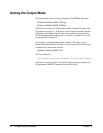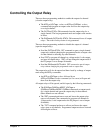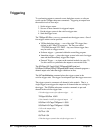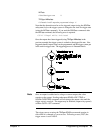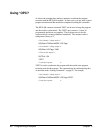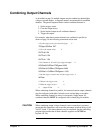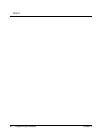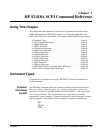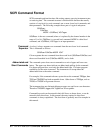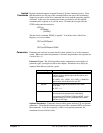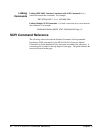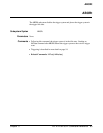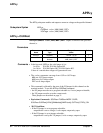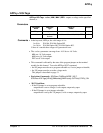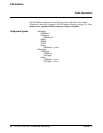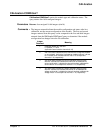
SCPI Command Format
SCPI commands perform functions like setting outputs, querying instrument states,
or retrieving data. The command structure is a hierarchical structure that usually
consists of a top level (or root) command, one or more lower level commands, and
their parameters. The following example shows part of a typical subsystem:
SOURcen:
FUNCtion:
MODE <CURRent | VOLTage>
SOURce
n: is the root command (where n is replaced by the channel number in the
range of 1 to 16),
FUNCtion: is a second level command, MODE is a third level
command, and
<CURRent | VOLTage> is an input parameter.
Command
Separator
A colon (:) always separates one command from the next lower level command.
This is illustrated as follows:
SOURcen:FUNCtion:MODE VOLT
Colons separate the root command from the second level (SOURcen:FUNCtion) and
the second from third level (
FUNCtion:MODE), and so forth.
Abbreviated and
Short Commands
The command syntax shows most commands as a mix of upper and lower case
letters. The upper case letters indicate an abbreviated spelling for the command.
For shorter program lines, send only the abbreviated form. For better program
readability use the entire command. The instrument will accept either the
abbreviated form or the entire command.
For example, if the command reference syntax shows the command
TRIGger, then
TRIG and TRIGGER are both acceptable forms. Other forms of TRIGger, such as
TRIGG or TRIGGE will generate an error.
The instrument does not distinguish between upper case and lower case characters.
Therefore
TRIGGER, trigger, and TrigGeR are all acceptable.
Command keywords can be entered in their full form, as shown above, or can be
entered in their short form. In this manual, the entry required in short form
commands is always capitalized. The short form is generally used for examples in
this manual.
60 HP E1418A SCPI Command Reference Chapter 3



